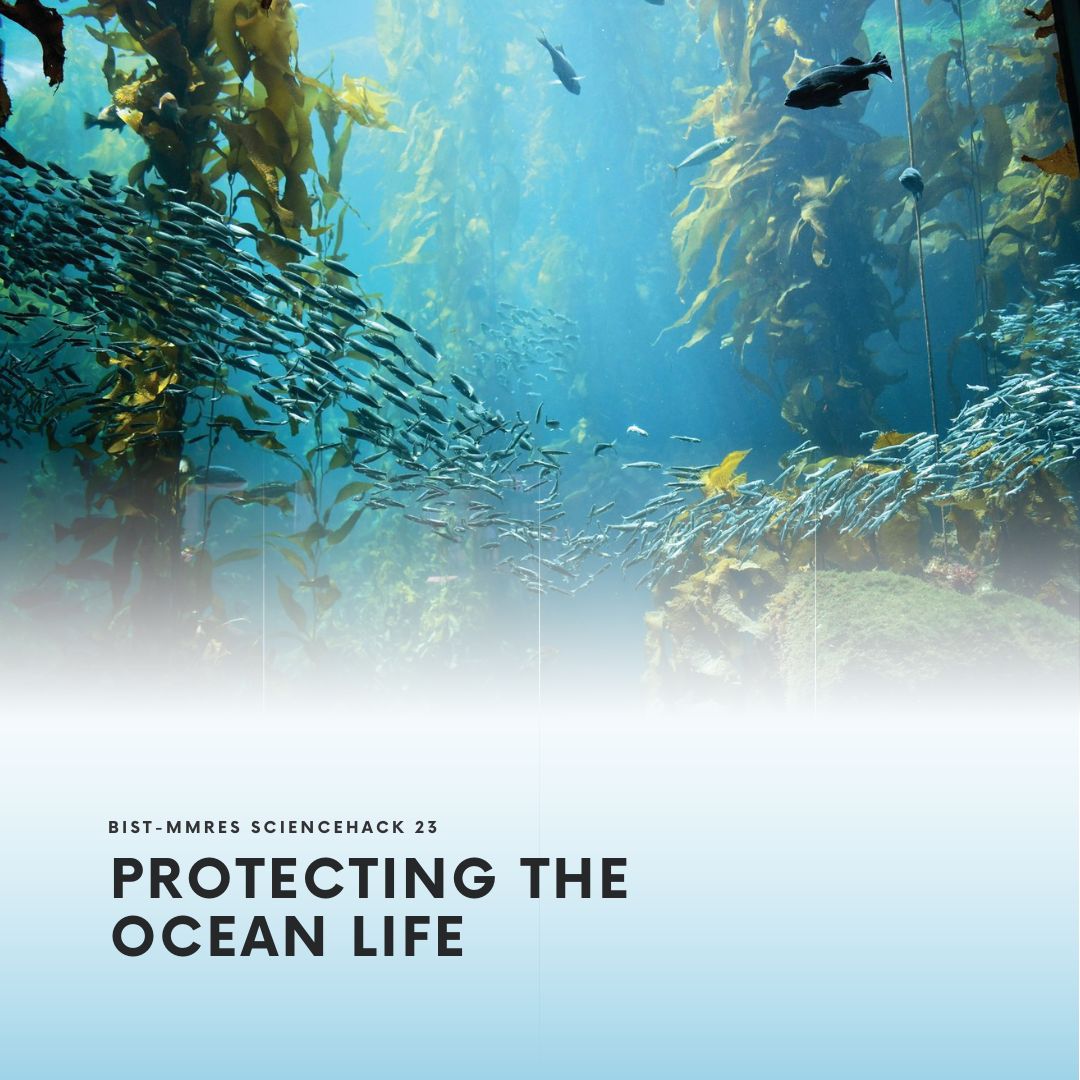
Humanity’s impact on the oceans is directly threatening the life of hundreds of species that live and thrive in them. Some examples are plastic pollution, fuel spills, raising temperatures, etc.
The challenge will be to develop a biological-based approach in order to reduce the impact of humans in marine life.
Humanity’s impact on the oceans is directly threatening the life of hundreds of species that live and thrive in them. Some examples are plastic pollution, fuel spills, increasing temperatures, etc. Your challenge is to develop a biological-based approach in order to reduce the impact of humans in marine life. You can focus on one specific problem and use multiple perspectives to tackle it.
The ocean and the life on it are essential for all life on Earth, including humans. The Oceans cover 71 % of the planets and are home to important species and ecosystems and scientists say that at least 50 % of
earth’s oxygen production comes from our oceans and, obviously, they are a major source of food and medicine and a critical part of the biosphere. Only recently, scientists have come to know about the devastating
impact that human activity has produced on ocean life. Fuel spills, plastic pollution, habitat destruction, climate change, invasive species, and other forms of human exploitation have put our ocean at risk. No area
has been left untouched.
The oceans cover over 70% of the Earth's surface and are home to a diverse array of life forms. However, humanity's impact on the oceans is directly threatening the life of hundreds of species that live and
thrive in them. Some examples of human impact on marine life include plastic pollution, fuel spills, increasing temperatures, and overfishing. These activities are causing significant damage to marine ecosystems and
are threatening the survival of many species.
Develop a biological-based approach in order to reduce the impact of humans in marine life. You can focus on one specific problem and use multiple perspectives to tackle it.
Potential Considerations
As you develop your solution, you may (but are not required to) consider the following:
INTERESTING READING
24 Teams joined!